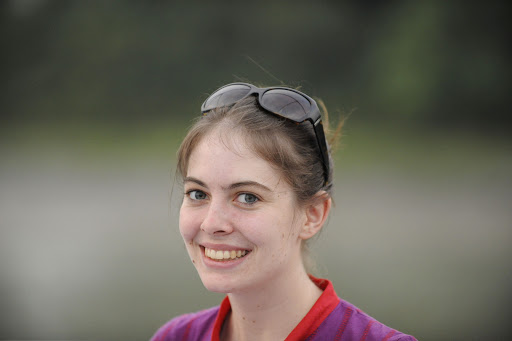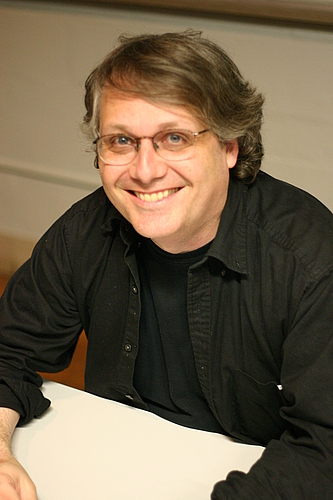I love it that Mary Beard is using her Don’s Life pulpit to attack the use of the word plebs as if it were plural, and to combat the incorrect use of “pleb,” which is not . . a . . . word. I thought I would add some observations on the word plebs as a complement to her excellent post. My only quibble with her is that the word is in fact seldom used as a term of abuse in surviving Latin (as are turba, multitudo, etc.). Its dignity is what is so interesting about it, given the extensive Latin lexicon of snobbery.

First, a few quotations:
(Lucius Ampelius, referring to events of 494/3, 449, 445 and 376-367 BC, Liber Memorialis 25:)
There were four secessions of the plebs from the fathers (i.e. the senate): the first secession because of the abuses of the moneylenders, when the plebs withdrew under arms to the Sacred Hill; the second because of the abuses of the Board of Ten when, after the murder of his daughter, Virginius surrounded Appius and his whole faction on the Aventine Hill and brought it about that Appius abdicated his magistracy and that those accused and condemned were punished by various penalties; the third was because of marriage, that plebeians be allowed to marry patricians, which Canuleius incited on the Janiculum Hill; the fourth secession, which Sulpicius Stolo incited, was in the forum because of magistracies, so that plebeians could become consuls.
(Julius Caesar, The Gallic War 6.13:)
(In Gaul) the plebs is held in a condition of near-slavery; they dare nothing on their own initiative, and are included in no decision-making. Most of them, oppressed as they are either by debt or heavy taxation or by the injustices inflicted by the powerful, consign themselves to servitude, and the nobles exercise over them all the rights of masters over slaves.
(Horace, expressing lack of interest in a political career, Letters 1.19.37-8:)
I don’t go hunting for votes cast by the fickle (ventosa) plebs by paying for their dinners and giving them used clothes.
Open class struggle was endemic to the early Roman Republic. The plebs, seeing itself shut out of priesthoods and magistracies by the patricians, and overwhelmed with debts held by wealthy landowners, responded by politicizing itself and forming its own organization. It was a phenomenon unparalleled in ancient history. Through strikes, demonstrations, and their trademark gesture of departing in a body to a hill and refusing to fight in the army (secessio), the plebs over the course of two hundred years of constant conflict with the senate achieved an end to debt-slavery, won official recognition for its representatives (the tribuni plebis, tribunes of the plebs), its own assembly (the comitia tributa, whose laws were made binding on everyone) and gained access to all the most coveted magistracies, even the consulship. The contemporaries of Machiavelli found all this class-based hostility and dissension deplorable and out of place in a well-ordered state. But Machiavelli himself, in his great commentary on the early books of Livy, disagreed. The lesson he drew from the Roman “struggle of the orders” was that in every Republic there are two opposed factions, that of the people and that of the rich, “and that all the laws made in favor of liberty result from their discord.” (Discourses 1.4) The place of the plebs in the Roman constitution was not as dominant as that of the Athenian demos in their democracy, but it was significant. Caesar draws an implicit contrast with the Roman way when he describes the supine condition of the plebs in Gaul.
As a result of this early history of political struggle and success, the word plebs never had the inbuilt sneer of other words for the non-rich, like turba (“mob”), multitutdo (“rabble”), or vulgus (“the common herd”). Livy, who tells the story of the early struggles, speaks of the plebs with considerable respect. And even through the much more violent clashes of the late Republic, rhetorical invective against the plebs itself (as opposed to their self-appointed elite representatives, the populares) is rare. The main criticism we hear is that the plebs is fickle, mobilis, or in the unusual phrase of Horace, ventosa, “windy,” that is, turned by every breeze. Orators and candidates had to cater to the plebs to get elected, and this naturally rankled the aristocrats. An orator is supposed to have said to a military man, when the two were competing for office of consul, that the latter’s chances were slim, “especially because—a thing which above all offends the minds of the plebs—you do not know how to beg.” (Calpurnius Flaccus, Declamations 47)
Under the principate things changed substantially. The Roman plebs lost its right to elect magistrates, and started receiving occasional distributions of grain. The emperors took a decidedly paternalistic attitude. The story goes that when an inventor offered Vespasian a device that would allow him to raise large columns with much less expense and manpower than the usual labor-intensive methods, he gave the man a reward for the device, but decided not to use it, allegedly saying, “let me feed my little plebs” (Vespasian 18). It is at this point that we start to hear denunciations of the plebs as a lazy urban rabble, addicted to free grain and chariot races (bread and circuses), the amenities provided by, or some would say extorted from, the government. In the later imperial historians the meaning of plebs becomes indistinguishable from that of turba or vulgus. To believe them, the disciplined political force of the early Republic has become a gawking mob. At the same time, Roman law was delimiting an ever-stricter barrier between elite and commons, so that the plebs was subject to certain “plebeian” punishments (flogging, torture, consignment to the mines) to which the upper classes were legally exempt. A late Roman compendium of law, the Codex Theodosianus, uses the word plebs to refer to the serfs irrevocably assigned to North African estates in the fourth century. This kind of wretched plebs was a long, long way from the fighting plebs of early Roman Republic, eight hundred years earlier.
Still, the essential dignity of the word made it appropriate in the first Latin translation in the Hebrew Bible for amo, the “people” of God, i.e. the Jews, and (from the fourth century on) an apt word for the Christian faithful (plebs Domini), and finally for a Christian “congregation,” the “laity,” as opposed to the clergy (clerus).
From Christopher Francese, Ancient Rome in So Many Words (New York: Hippocrene, 2007).







 Of the many fascinating points in his keynote speech about the techniques of visual communication and learning, one was a critique of the way presentation software is commonly used, with outline slides that statically reproduce a series of points that a speaker is making. McCloud’s active principal, brilliantly put into practice in his own show, is synchronization: “When I’m telling you, I’m showing you. When I’m done telling you, I’m not showing you anymore.” Cognitive load time, the time it takes to “get” what you are looking at, is very quick, and continuing to display words or images long after their moment has past is deadening. Wordy, over-dense slides, he points out, are a legacy of print culture. The mind is quick, predisposed to fill in gaps, to create meaning and narrative from small, disparate pieces of visual information. This means that “visual rhetoric” can be very powerful. But we have not as yet figured out how that visual rhetoric can best be employed. This is one area he plans to explore in his future work.
Of the many fascinating points in his keynote speech about the techniques of visual communication and learning, one was a critique of the way presentation software is commonly used, with outline slides that statically reproduce a series of points that a speaker is making. McCloud’s active principal, brilliantly put into practice in his own show, is synchronization: “When I’m telling you, I’m showing you. When I’m done telling you, I’m not showing you anymore.” Cognitive load time, the time it takes to “get” what you are looking at, is very quick, and continuing to display words or images long after their moment has past is deadening. Wordy, over-dense slides, he points out, are a legacy of print culture. The mind is quick, predisposed to fill in gaps, to create meaning and narrative from small, disparate pieces of visual information. This means that “visual rhetoric” can be very powerful. But we have not as yet figured out how that visual rhetoric can best be employed. This is one area he plans to explore in his future work. One of his interesting observations regarding comics is that comic strips–3 or 4 panels– have transferred quite well to the web, but that long form graphic novels (think Persepolis and Maus) have not. In his view this is because people have an in-built desire for immersion, to lose themselves in fictional worlds, and that this is simply not readily possible on a computer screen. Books allow us that immersion, that forgetting of the medium known as the proscenium arch phenomenon, in a way that screens do not.
One of his interesting observations regarding comics is that comic strips–3 or 4 panels– have transferred quite well to the web, but that long form graphic novels (think Persepolis and Maus) have not. In his view this is because people have an in-built desire for immersion, to lose themselves in fictional worlds, and that this is simply not readily possible on a computer screen. Books allow us that immersion, that forgetting of the medium known as the proscenium arch phenomenon, in a way that screens do not.



